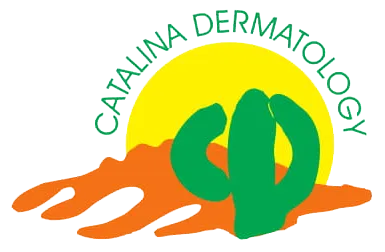Skin cancer is a common disease in which abnormal skin cells grow uncontrollably. The most common types include basal cell carcinoma, squamous cell carcinoma, and melanoma. Early detection is crucial for effective treatment. Signs and symptoms can vary but often include changes in moles, new growths, persistent itchiness, or sores that bleed or do not heal.
To prevent skin cancer, regular self-examinations and consistent sun protection are essential. Professional skin cancer screenings at Catalina Dermatology, with locations in Tucson and Casa Grande, are vital for early detection and diagnosis. Dermatologists have the expertise to recognize suspicious lesions and provide timely interventions, increasing the chances of successful outcomes.
Regular check-ups can save lives. Scheduling a screening at Catalina Dermatology is a critical step in maintaining your skin’s health.
Skin Cancer: Explained:
Skin cancer encompasses several types, each with its risks. Basal Cell Carcinoma (BCC) appears as a flesh-colored or pearly bump, most common in sun-exposed areas.
While it rarely spreads, untreated BCC can damage nearby tissues. Squamous Cell Carcinoma (SCC) often presents as a red, scaly patch or sore areas found on sun-exposed regions. SCC can metastasize, posing a higher risk. Melanoma, the deadliest form, emerges from moles or develops as new pigmented growths. Its appearance may vary, and early detection is crucial. Risk factors for skin cancer include UV exposure, fair skin, family history, immune suppression, and age. Avoiding tanning beds, using sunscreen, and wearing protective clothing can reduce risks. Regular skin checks (even if symptoms aren't present) can lead to timely detection and treatment, ensuring the best possible outcomes. Compassionate care and early intervention at Gardens Dermatology & Cosmetic Surgery Center can make a difference in the fight against skin cancer.
Prevention, Diagnosis, & Treatment
Skin cancer prevention involves sun protection, such as wearing sunscreen and protective clothing, plus seeking shade. Regular skin self-examinations and professional check-ups aid in early diagnosis. Visit a dermatologist immediately if you notice suspicious moles, changes in skin appearance, or unusual growths. Early detection significantly improves treatment outcomes. Treatment options depend on cancer type, stage, and patient factors. Surgical excision, cryotherapy, and Mohs surgery remove cancerous growths. Non-invasive methods like photodynamic therapy target superficial lesions. More advanced cases may require radiation, chemotherapy, or immunotherapy.
Treatment for skin cancer aims to eradicate cancer cells while preserving healthy tissue and minimizing side effects. The significance of treatment lies in its potential to save lives and improve quality of life, underscoring the importance of proactive prevention and vigilant detection.
Please explore our website to learn about the conditions we treat and the services we provide. Call our Tucson or Casa Grande, AZ offices at (520) 529-8883, or our Vail office at (520)-479-1881 to schedule an appointment with one of our board-certified dermatologists at Catalina Dermatology. We are here to discuss the prevention, diagnosis, and treatment of skin cancer and to help you maintain your skin health.
